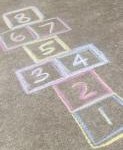 I realised I mostly wrote about quick games, fillers or warmers that may help the teachers to motivate the students or change the phase or the pace of a lesson.
I realised I mostly wrote about quick games, fillers or warmers that may help the teachers to motivate the students or change the phase or the pace of a lesson.
I believe these activities are great to present and practice a new language. During the activities, students will be more involved, enthused and eager to do or finish the activity and the teacher will look more friendly, approachable and cheerful.
I’m sure the experienced members of my PLN will have more to add to the followings but let’s say this is kind of an introduction for the new comers to the ELT world.
Games and game like activities
ICEBREAKERS AND WARM-UPS
- Tongue twisters: these are great challenges and also good for pronunciation and memory.
- Find someone who: You can use this activity anytime you want during the lesson, as a warmer for presenting or awareness-raising or at the end of a lesson as a filler to practice the target language.
- Puzzles, word games: these are good for vocab revision. I also ask my students to create their own puzzles then they exchange the puzzle and try to solve the ones their friends prepared. If you want they can prepare them in pairs or groups.
- Charede: this one is my favourite. It can be used as a filler. Team them and tell them they will compete. Usually we play charde with grammatical structures such as If clauses, time clauses or relatives. Once they code certain things and get the rule they easily guess the sentence. Plus they mime and have fun.
- Yes-No Game
- Line up according to: This is a good warmer and also works well to group your students for the next activity. You can line your students according to the seasons they were born in or the fast food they like or the shoes they are wearing. The alternatives are endless. Just use your imagination.
- Stand up if: This one is also a great warmer, filler or energizer. Shout out sentences and tell your students to stand up if the statement is correct for them. You can change the instruction and say, for instance, touch your nose if you agree and jump if you disagree.
- Associations : give 2 object, which looks completely different and ask them to find the similarities.
- How can we use it other than: Give them an object, say a paper clip and give them time to list what else we can do with a paper clip apart from attaching paper.
- Tic-tac-toe: you can use it to practice and revise vocabulary and grammar points.
- Dictations
- Shake hands: This is a great activitywith lots of laughter and action.Play some music and tell your students when you stop the music they will greet each other as you instruct. Instruct your students as follows:
- Greet each other as two close friends
- Greet each other as neighbours
ENDERS
- Guided Fantasy: it is great after a hard day’s work, just relax, close your eyes and imagine…. You will find lots of ideas in Imagine That by J. Arnold,H. Puchta, M.Rinvolucri .
- Sentence completion: good for feedback and/or evaluation.
- Memory games
- Flash dictations.
- Wall dictation
VOCABULARY GAMES
- Puzzles
- Miming
- Chinese whispers
- Hot seat
- Vocabulary match to find the new partner
- Bingo
- Tic-tac-toe
- Hang a man
- Find someone who: Find someone who with words and definition. Find someone who can define ‘a word’. / Find someone who can use ‘this particular word’ in a sentence. / Find someone who knows a synonym or antonym for ‘this word’
GRAMMAR GAMES
- Find someone who
- 20 questions
- Kim’s game
- I went to the market and I bought
- Stand up if
Great collection, Eva!
Another game I enjoy using to make my students practise grammar is “Sentence Auctions”. Probably you know about it. You give students 20 sentences and fix an imaginary amount of money they have. They’re supposed to read the sentences and bid. Once this first part is finished, the teacher is the auctioneer and offers the sentences, students bid in a loud voice and the one who has offered the highest amount of money keeps the sentences. When all the sentences have been “auctioned” the amount of money that has been offered for them is added or substracted from the original amount they students had according whether the sentences they had bought is correct or not. The student who has the highest amount of money after additions and substractions is the winner.
Pingback: Tweets that mention GAMES, FILLERS, WARM-UPS | A Journey in TEFL -- Topsy.com
Thank you Marisa for your contribution. Sentence Auction is a wonderful game for revising and practicing grammar.
Eva